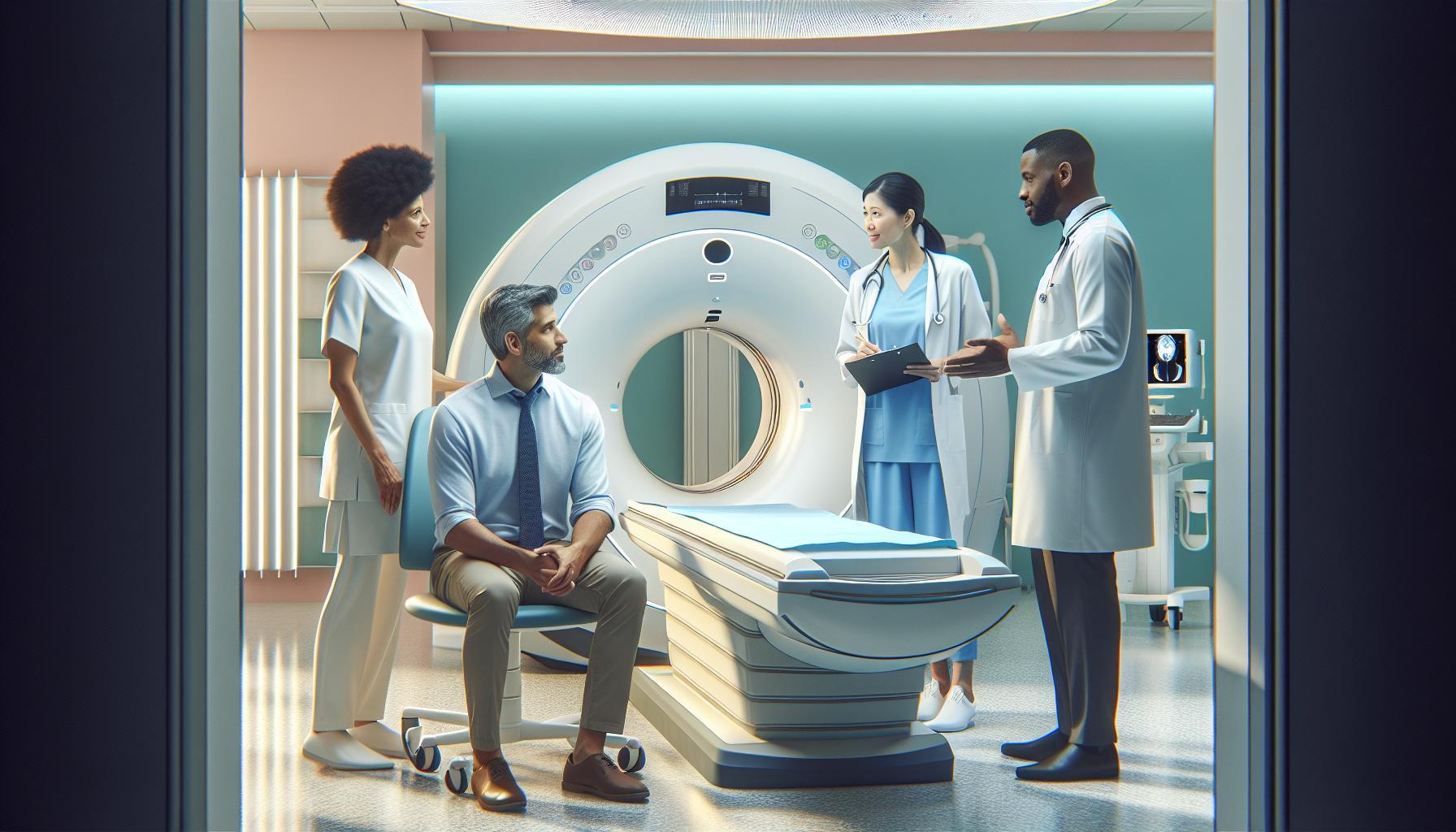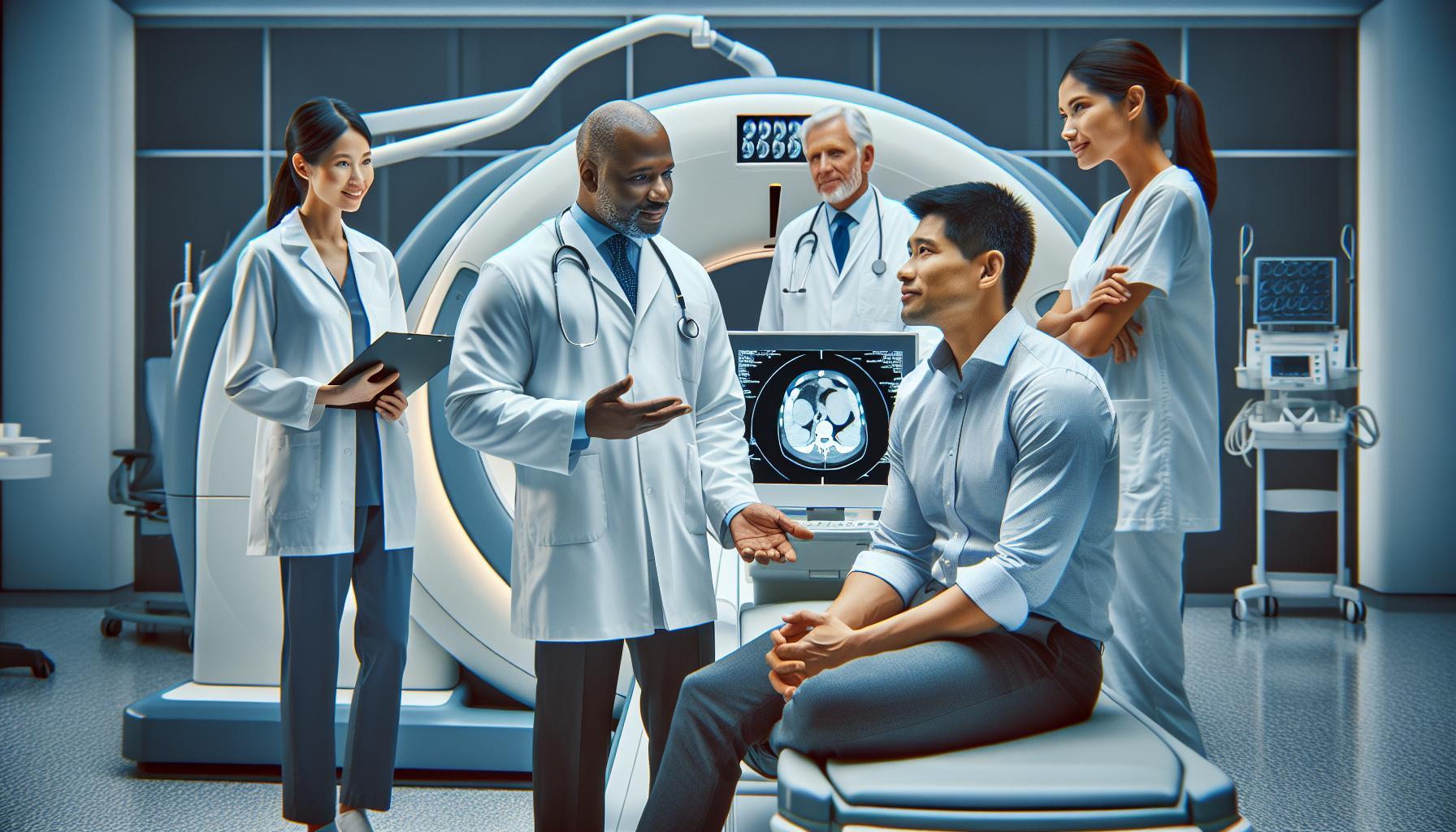When it comes to heart health, understanding the duration of a CT scan can significantly ease anxiety for patients preparing for the procedure. Typically, a CT scan of the heart takes about 10 to 30 minutes, depending on various factors such as the specific type of scan and the equipment used. Knowing how long to expect can help you manage your schedule and alleviate any apprehensions associated with the process.
CT scans are a vital tool in diagnosing and monitoring heart conditions, providing detailed images that can reveal critical information about your cardiovascular health. As you read on, you’ll discover essential insights, including the preparation involved, what to expect during the scan, and how the information gained can empower you in conversations with your healthcare provider. Understanding this timeline not only demystifies the procedure but also illustrates its importance in maintaining and assessing your heart health.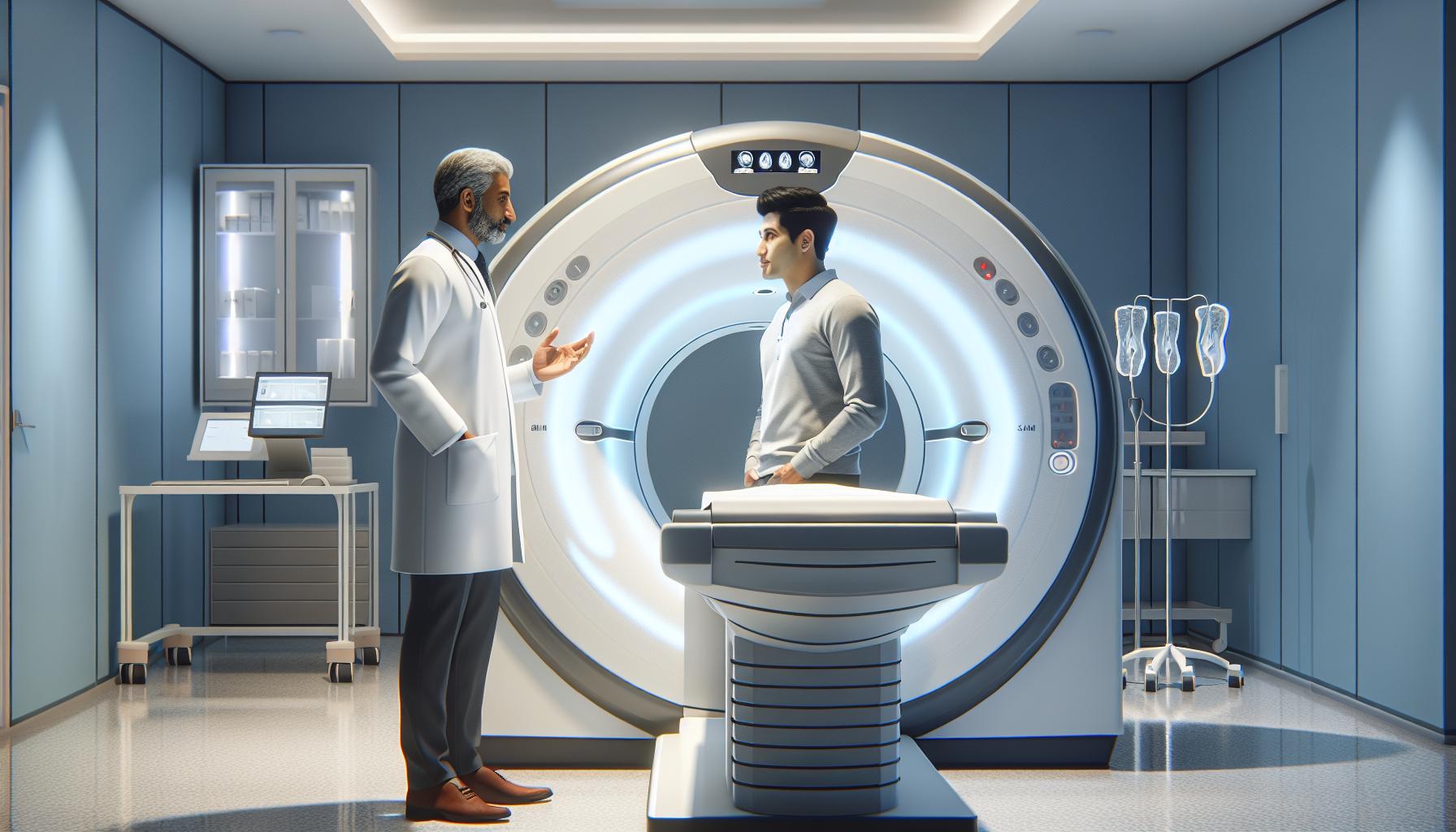
How a CT Scan of the Heart Works
A CT scan of the heart, also known as cardiac computed tomography, is a powerful imaging technique that provides detailed images of your heart and the blood vessels surrounding it. This non-invasive procedure uses X-ray technology to create cross-sectional images, allowing doctors to visualize the structure of the heart, check for blockages in the coronary arteries, and assess heart function. The heart’s anatomy can be captured in multiple dimensions, aiding in the diagnosis of conditions such as coronary artery disease or congenital heart defects. By delivering precise imaging, CT scans play a crucial role in determining the most effective treatment plans.
During the scan, you will lie down on a motorized table that moves through a large, donut-shaped X-ray machine. The procedure is generally quick and can take anywhere from a few minutes to about 30 minutes, depending on the type of scan performed and specific patient factors. It’s essential to remain still during the imaging process to ensure clear pictures are captured. Advanced cardiac CT scans often utilize contrast material injected through an intravenous line, enhancing the visibility of blood vessels and improving diagnostic accuracy.
It’s common for patients to have concerns regarding the safety of CT scans, particularly related to radiation exposure. However, the levels of radiation used in heart CT scans are typically low and carefully monitored. Healthcare providers will take all necessary precautions to minimize exposure. Always feel free to discuss any concerns with your physician, who can provide context and reassurance about the procedure’s benefits in the context of your specific health situation.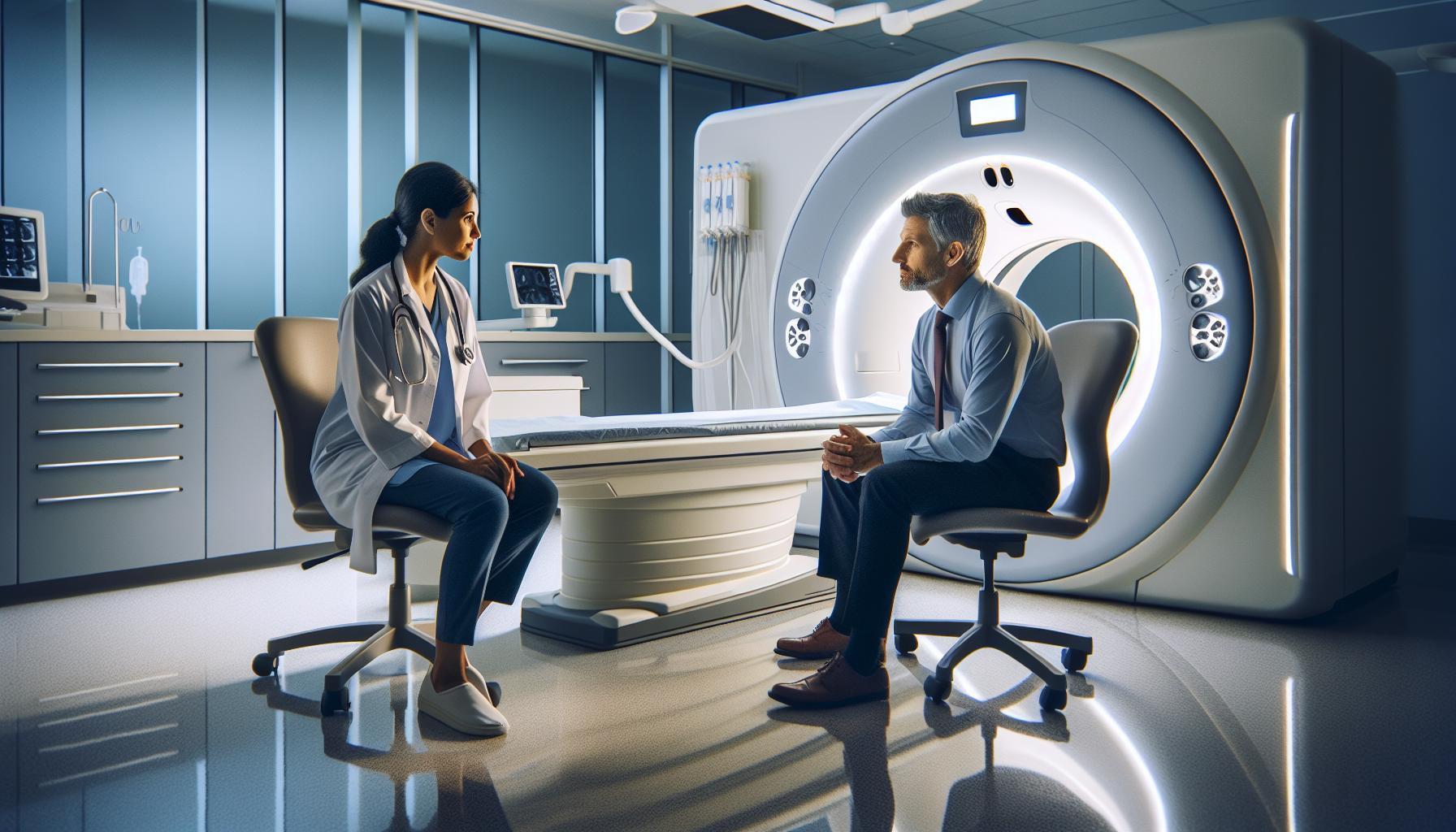
Typical Duration of a Heart CT Scan
The duration of a heart CT scan can vary significantly based on multiple factors, but most procedures are relatively quick, typically lasting between 10 to 30 minutes. This brief timeframe is appealing for patients who may feel anxious about medical imaging. Most of the time, the actual scanning takes a mere few seconds once you’re positioned correctly within the scanner; however, the overall appointment length also includes preparation and recovery time.
Several factors can influence how long your heart CT scan will take. For instance, if you are receiving intravenous contrast material for enhanced imaging, the preparation time may increase slightly as the healthcare team will need to ensure proper placement of the IV and monitor your reaction. Additionally, patient anxiety can affect scan duration, as doctors may need to take extra time to reassure and guide more anxious individuals through the procedure.
Understanding the procedure’s logistics can alleviate some stress. Before your appointment, it’s advisable to arrive early to complete any necessary forms and prepare for the scan itself. This head start can ensure everything moves smoothly, helping keep the total time spent at the imaging center to a minimum. Moreover, discussing any concerns beforehand with your healthcare provider can pave the way for a more comfortable experience, allowing you to focus on the important health insights that the scan can provide.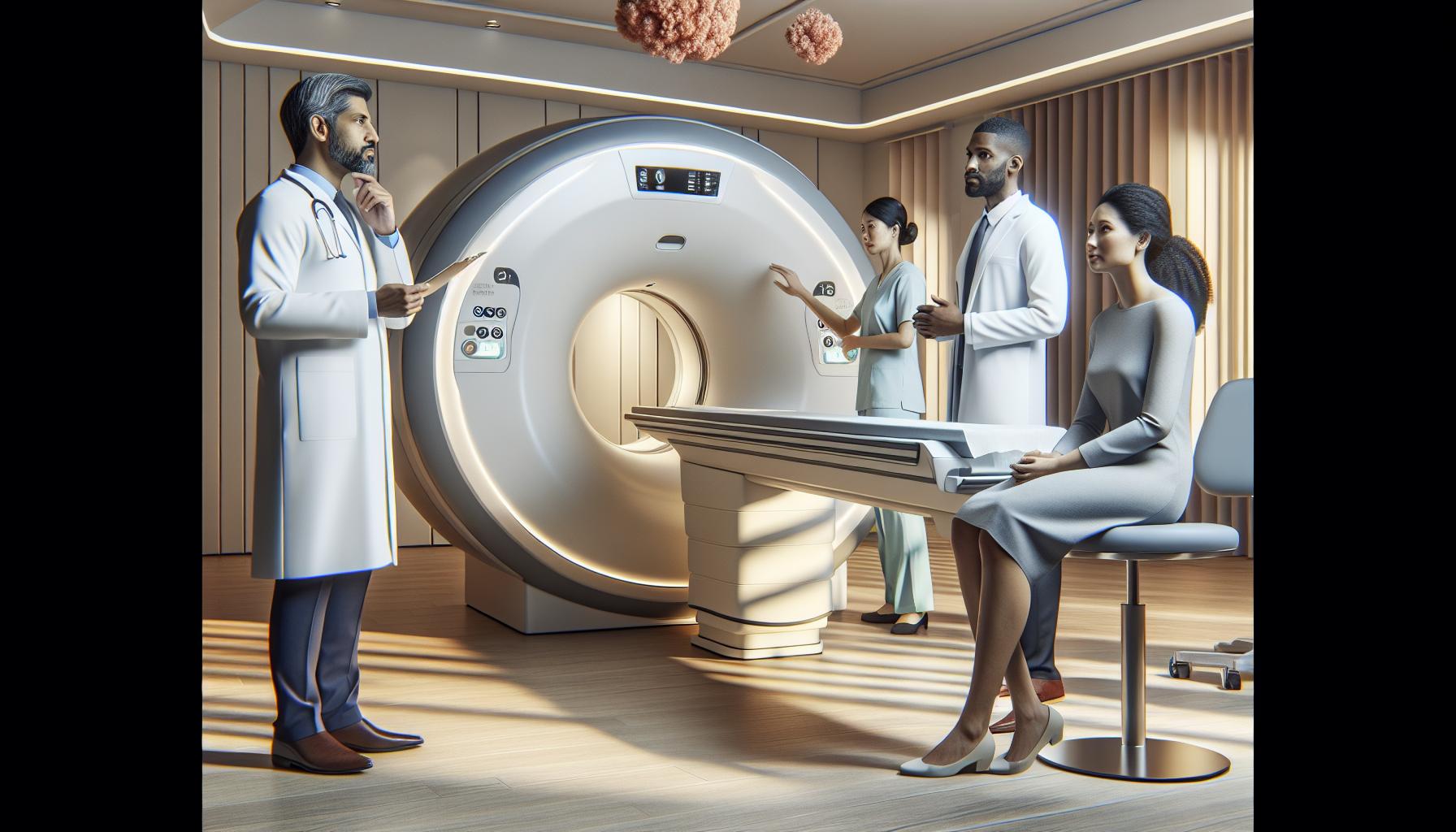
Factors Influencing CT Scan Time
Several key factors can influence the duration of a heart CT scan, shaping your overall experience significantly. One major contributor is whether or not contrast material is used. If your scan requires an intravenous injection of contrast for enhanced imaging quality, this can extend the preparation time as healthcare professionals must first secure the IV and monitor any reactions. The contrast helps to better visualize blood vessels and heart structures, but it also necessitates additional time to ensure your safety and comfort.
Another essential factor to consider is the patient’s state of mind and physical readiness. Anxiety can prolong the procedure, as healthcare providers may need to spend extra time reassuring and guiding nervous patients. If this applies to you, communicating your concerns upfront can prevent unnecessary delays during the scan. Techniques such as deep breathing or having a support person with you may also help calm your nerves and streamline the process.
Furthermore, scheduling dynamics at the imaging center can also impact timing. If the facility is busy, there may be waiting time involved before you are called in for the procedure. Arriving early can mitigate some stress by ensuring you have ample time to fill out necessary forms and prepare for the scan without feeling rushed.
Understanding these factors can help you better prepare for your heart CT scan, contributing to a smoother experience that respects both your time and emotional well-being. Remember, open communication with your healthcare provider can pave the way for a more efficient procedure.
Step-by-Step Preparation for a Heart CT
Preparing for a heart CT scan can seem daunting, but understanding the steps involved can ease your mind and ensure a smoother experience. The preparation process is crucial for getting accurate results, so taking the necessary steps beforehand is essential. Here’s a comprehensive guide to help you navigate this process effectively.
Begin by consulting with your healthcare provider, who will explain the specifics of the heart CT scan and why it’s being recommended for you. They may provide you with specific instructions, including dietary restrictions. It’s important to consider whether you will receive contrast material during the scan. If so, you may need to fast for several hours beforehand, typically around four hours, depending on your doctor’s advice. This ensures that the contrast dye is more effective during the imaging process.
Next, on the day of the scan, dress in comfortable clothing without metal fastenings such as zippers or buttons, as these can interfere with the imaging. You may also be asked to remove jewelry and other accessories that could obstruct the scanner’s view. When you arrive at the imaging center, you will check in and may be asked to fill out forms regarding your health history and any allergies, particularly to contrast dye. Do not hesitate to communicate any concerns or previous reactions you may have had.
After check-in, a healthcare professional will guide you to the scanning room. It’s advisable to arrive early to complete paperwork and settle in without feeling rushed. During the preparation, they may insert an IV if contrast material is required, allowing extra time to monitor you for any possible allergic reactions. Finally, remember to relax and breathe deeply; many facilities understand that anxiety can be a part of the process. Consider bringing a support person along for emotional reassurance. Preparation is key to a successful heart CT scan, and an open dialogue with your healthcare team can significantly alleviate any concerns and enhance your overall experience.
What to Expect During the Procedure
During the heart CT scan, you can expect a gentle and straightforward process aimed at providing your healthcare provider with crucial information about your heart’s structure and function. Upon entering the scanning room, a friendly technician will greet you and guide you through the procedure. The setting is designed to be calm and reassuring, minimizing any feelings of anxiety you may have about the scan.
Once you’re in the scanning room, you’ll be asked to lie down on a padded table that slides into the CT scanner, which looks like a large doughnut in shape. It’s important to remain as still as possible during the scan, since any movement can affect the image quality. The technician will usually position you carefully-making sure you’re comfortable while allowing for the best angle for the images. You may be given a soft pillow to support your head and neck, and a strap may be placed across your chest for additional comfort and stability.
As the scan begins, you will hear a whirring or buzzing noise from the machine, accompanied by brief periods where you might be instructed to hold your breath for a few seconds. This is crucial as it enables the scanner to capture clear images of your heart. The entire scanning process typically lasts about 10 to 30 minutes, depending on the specific type of imaging being performed. If contrast material is used, you may feel a warm sensation when the dye is injected through an IV; some patients describe it as feeling like a rush of warmth through their body.
After the scan is complete, you will be monitored for a short time to ensure that you feel well and to check for any potential reactions if contrast material was used. You can then resume your usual activities. Rest assured that the medical team is trained to support you throughout the process and address any concerns or questions you have along the way. Understanding what happens during a heart CT scan can help alleviate stress and ensure you are prepared for what lies ahead.
Post-CT Scan: Understanding Your Results
Understanding the outcomes of your heart CT scan can significantly ease your mind, especially when it comes to interpreting the results. Typically, after your scan, the images are reviewed by a radiologist who will analyze the data and compile a report for your physician. It’s important to know that this process can take a little time, usually ranging from a few hours to a couple of days, depending on the schedule of the medical staff and the complexity of your case.
Once your results are ready, your doctor will schedule a follow-up appointment to discuss the findings with you. During this meeting, they will explain what the images revealed, whether there are any areas of concern, and how these findings relate to your overall heart health. This is a good opportunity to ask any questions you may have, such as what the next steps are or if additional tests are recommended. Having a clear understanding of your results helps turn anxiety into actionable steps towards your health.
The imaging from a heart CT scan can provide critical insights into various heart conditions, such as coronary artery disease, heart size, or structural abnormalities. In some cases, your doctor may assess issues such as blockages or the presence of calcium within the arteries that could indicate a risk for heart disease. Understanding these aspects can empower you to participate actively in your treatment plan, making lifestyle changes or adhering to medications as advised.
Remember, it’s normal to feel anxious while waiting for results or during discussions about your heart health. However, keeping the communication lines open with your healthcare team will provide reassurance and clarity. Engaging with your doctor about any concerns or confusion can transform what initially feels daunting into an informed and manageable part of your healthcare journey.
Safety Measures and Risks of Heart CT Scans
Undergoing a heart CT scan can feel daunting, but understanding the safety measures in place and the potential risks involved can empower you as a patient. Medical technology has advanced significantly, ensuring that the procedures used are not only effective but also prioritize patient safety. Heart CT scans are designed to provide crucial insights into your cardiovascular health, and while there are some risks associated with them, the benefits often outweigh these concerns.
One of the primary safety considerations is the exposure to radiation. Heart CT scans do involve the use of X-rays, which means there is a minimal amount of radiation exposure. However, modern CT machines are engineered to use the least amount of radiation necessary to obtain clear images. The radiologist will carefully assess your health history and the necessity of the scan to make sure it is justified. In most cases, the risk associated with this radiation exposure is quite low, especially when weighed against the potential benefits of accurately diagnosing heart conditions.
The use of contrast dye is another aspect to consider. This dye helps enhance the images of your heart and blood vessels, allowing for a clearer picture during the scan. However, some individuals may experience allergic reactions to contrast material. It’s important to inform your healthcare provider of any allergies or previous reactions you may have had. For those with kidney issues or diabetes, the healthcare team may take extra precautions, including hydration or alternative imaging techniques, to mitigate any risks.
Safety measures also encompass meticulous preparation before the procedure. Patients are typically required to refrain from eating or drinking for a few hours prior to the scan, particularly if contrast dye is used. This not only minimizes feelings of discomfort during the scan but also ensures clearer imaging results.
In summary, heart CT scans are equipped with stringent safety protocols and are performed by trained professionals who prioritize your well-being. If you have any concerns about the risks or procedure itself, don’t hesitate to engage with your healthcare team. They can provide reassurance tailored to your specific health context, enabling a smoother experience. Ultimately, knowledge and open communication are your best allies in navigating your heart health journey.
Cost Overview: What You Need to Know
Understanding the financial aspects of a heart CT scan can significantly reduce anxiety for patients preparing for the procedure. The costs associated with heart CT scans can vary widely based on several factors, including the healthcare facility, geographical location, and whether you have insurance coverage. In the United States, the typical price range can span from $500 to over $3,000 for a heart CT scan, especially if contrast dye is utilized or if additional imaging is required.
Factors Influencing Cost
A number of elements can influence the total cost of a heart CT scan, including:
- Insurance Coverage: If you have health insurance, the out-of-pocket costs may be significantly reduced. It’s crucial to verify with your insurance provider about coverage specifics for imaging tests.
- Facility Type: The location of the scan-whether in a hospital or an outpatient imaging center-can affect pricing. Hospitals may charge more due to increased operational costs.
- Geographical Variation: Prices can differ from one region to another. Major metropolitan areas often have higher costs due to demand and higher overhead.
- Type of Scan: Certain types of heart CT scans, such as those for detecting coronary artery disease versus general assessments, may vary in cost due to the complexity and technology involved.
Reducing Your Costs
If financial concerns are affecting your ability to undergo a heart CT scan, there are avenues to explore that may help alleviate the burden:
- Shop Around: Don’t hesitate to contact different imaging centers or hospitals to compare costs.
- Ask About Payment Plans: Many facilities offer payment options or financing to help manage large expenses.
- Check for Discounts: Some facilities may provide discounts for uninsured patients or for paying upfront.
- Consult Your Doctor: Discussing the necessity of the scan with your healthcare provider may lead to alternative diagnostic options that are more cost-effective.
By arming yourself with knowledge about the costs associated with a heart CT scan, you can take proactive steps to manage your health priorities while also considering your financial wellbeing. Always consult your healthcare provider or financial advisor about your specific circumstances to make the most informed decisions related to your healthcare needs.
Comparing CT Scans with Other Heart Imaging
When it comes to cardiac imaging, several advanced techniques are available, each with its unique advantages and limitations. A CT scan, particularly a coronary CT angiography (CTA), is frequently utilized for assessing heart conditions, but other modalities like echocardiography, magnetic resonance imaging (MRI), and traditional angiography also play crucial roles in diagnostic imaging.
CT scans are especially effective in providing detailed images of the heart’s arteries, making them invaluable for identifying blockages and assessing the risk of coronary artery disease. One of the standout features of a heart CT scan is its speed-scans typically take only a few minutes to complete, providing rapid results that can be crucial in emergencies. In contrast, echocardiography, while it can visualize heart chambers and function dynamically, may take longer and often relies heavily on the technician’s skill in acquiring quality images. MRI provides exceptional detail as well, especially for the heart muscle and function, but the procedure can be lengthy and may not be available in all facilities.
Here’s a brief comparison of these imaging techniques:
| Imaging Technique | Duration | Benefits | Considerations |
|---|---|---|---|
| CT Scan | 5-15 minutes | Highly detailed images of heart vessels; quick. | Radiation exposure; contrast dye reactions. |
| Echocardiography | 30-60 minutes | Safe; no radiation; real-time imaging. | Limited detail of vascular structures. |
| MRI | 30-90 minutes | Excellent for soft tissue and cardiac function. | Time-consuming; may require sedation; expensive. |
| Traditional Angiography | 30-60 minutes | Direct visualization of blood flow; therapeutic options. | Invasive; risks associated with catheterization. |
Choosing the right imaging modality often depends on your specific health concerns and the urgency of the situation. Discussing with your healthcare provider is essential, as they can evaluate your symptoms, history, and the information needed to guide a diagnosis. They will work with you to determine the best imaging technique suited to your condition, ensuring you receive the most effective and timely care possible. Remember, understanding your options helps in reducing anxiety related to medical procedures, and being informed empowers you in your healthcare journey.
Common Questions About Heart CT Scans
A heart CT scan can be an essential part of diagnosing various cardiovascular conditions, and it’s natural to have questions about the process. One common inquiry pertains to the duration of the scan. Typically, a heart CT scan lasts between 5 to 15 minutes. This rapid completion time is one of its significant benefits, especially in emergency situations where quick assessment is crucial.
While the scan itself is swift, it’s essential to consider factors that could influence the overall time spent in the facility. Delays before the procedure might occur due to patient preparation, which can include changing into a hospital gown, discussing medical history, and possibly administering contrast dye if required. It’s also important to allow time for post-scan imaging review, which your healthcare provider will explain.
Patients often wonder about the safety and comfort of the procedure. Advanced technologies enable the non-invasive capture of detailed images, and while the use of radiation is a consideration, the benefits in diagnosing critical conditions typically outweigh the risks. If you’re feeling anxious, it can be reassuring to know that the scanning process is designed to be as quick and comfortable as possible. Communicating your concerns with the healthcare team beforehand can help ease any apprehensions and ensure a smoother experience.
Understanding what to expect can empower you. If you have further questions about the timing, safety, or results of a heart CT scan, don’t hesitate to ask your doctor or the medical staff-they are there to help guide you through the process smoothly.
Tips for a Stress-Free CT Scan Experience
When facing a CT scan of the heart, alleviating anxiety is essential for a smooth experience. The anticipation surrounding medical procedures often contributes to stress, which can affect both your emotional state and your body. Luckily, with a little preparation, you can significantly enhance your experience. Understanding the process and taking proactive steps can make all the difference, turning what might feel intimidating into a manageable and brief event.
One key strategy is to educate yourself about the entire process ahead of time. Familiarize yourself with what will happen before, during, and after the scan. Before your appointment, take time to gather necessary items like your insurance card and any medical history relevant to your heart health. If you’re required to fast or avoid certain medications, set reminders to ensure you follow these instructions precisely. Consider wearing comfortable clothing without metal embellishments, as changing into a hospital gown can sometimes add unnecessary stress.
During the procedure, mindfulness techniques can also be beneficial. Practicing deep, slow breathing while you are positioned in the CT scanner can help you stay calm. Remember that the scan will take only a few minutes, and the staff will guide you through every step. Avoiding strong stimulants like caffeine beforehand can also contribute to a more relaxed state.
Post-scan, be sure to ask your healthcare provider about when and how you will receive your results, which can ease lingering concerns. Knowing the timeline can help you feel in control. If you have questions or uncertainties, don’t hesitate to communicate with your medical team; they are there to support you and can provide reassurance throughout the process.
By approaching your heart CT scan with information and intention, you can create a far more positive experience, ensuring that both your body and mind are prepared for this essential health assessment.
When to Consult Your Doctor About CT Scans
Understanding when to reach out to your doctor about CT scans is crucial for your health and peace of mind. While CT scans are valuable diagnostic tools, they may not be necessary for everyone, and discussing your individual circumstances with your healthcare provider can clarify this. If you experience symptoms such as unexplained chest pain, shortness of breath, or unusual heart palpitations, it’s wise to consult your doctor. They can evaluate whether a heart CT scan is appropriate based on your medical history, risk factors, and current health status.
Another important consideration is your personal medical history. If you have a family history of heart disease or have been diagnosed with conditions such as hypertension or diabetes, discussing the need for a CT scan can be essential. Your physician can help determine if these factors warrant the use of advanced imaging techniques to evaluate your heart’s condition effectively. Moreover, if you have previously undergone a CT scan and have concerns about the findings, or if you’re contemplating follow-up scans, it is vital to have this dialogue as well.
It is also advisable to speak to your doctor if you have specific concerns about the risks associated with CT scans, especially regarding radiation exposure. While modern CT technology has reduced radiation levels significantly, understanding your situation, including any previous imaging studies you might have undergone, allows your healthcare provider to make the most informed decision regarding your diagnostic imaging needs. Clear communication with your doctor ensures you can navigate potential risks versus benefits confidently.
Before your scheduled heart CT scan, if you find yourself anxious or uncertain about the process, don’t hesitate to contact your healthcare provider for reassurance. They can offer insight into what to expect, explain the purpose of the scan in relation to your symptoms, and provide support to ease any worries you may have about the procedure. Empowering yourself with knowledge and engaging in these discussions can enhance your overall experience, ensuring that you feel confident and informed every step of the way.
Q&A
Q: How long does the entire process of a heart CT scan take?
A: The entire process of a heart CT scan typically takes about 30 to 60 minutes. This includes preparation, the actual scan, and post-scan instructions. However, the actual scanning time is usually only around 10-15 minutes. For detailed insights, refer to the section on “Typical Duration of a Heart CT Scan.”
Q: What should I wear for a heart CT scan?
A: Wear comfortable, loose-fitting clothing without metal fasteners. It’s advisable to wear clothing that you can easily remove if asked, as you might need to change into a gown. For guidelines on preparation, see “Step-by-Step Preparation for a Heart CT.”
Q: Can I eat before a heart CT scan?
A: Depending on the type of heart CT scan, your doctor may ask you to fast for a few hours prior to the procedure. Always follow your doctor’s specific instructions regarding eating or drinking beforehand. For more details on what to expect, check “What to Expect During the Procedure.”
Q: Are there any side effects from a heart CT scan?
A: Generally, heart CT scans have minimal side effects, but some patients may experience allergic reactions to the contrast dye used. Discuss any potential risks with your healthcare provider beforehand. For safety measures, refer to “Safety Measures and Risks of Heart CT Scans.”
Q: How will I receive the results of my heart CT scan?
A: Results from a heart CT scan are typically reviewed by a radiologist and then communicated to your doctor, who will explain the findings. You can expect to receive results within a few days. For further understanding, see “Post-CT Scan: Understanding Your Results.”
Q: Can I bring someone with me to my heart CT scan appointment?
A: Yes, you can usually bring someone for support, but they may be required to wait outside during the scan. It’s best to confirm policies with your imaging center beforehand. For more information, consult the “Tips for a Stress-Free CT Scan Experience.”
Q: What is the difference between a heart CT scan and other imaging techniques?
A: A heart CT scan provides detailed images of the heart and blood vessels, which can be more precise than other imaging methods like echocardiograms or traditional X-rays. Learn more about the comparisons in “Comparing CT Scans with Other Heart Imaging.”
Q: When should I consult my doctor about needing a heart CT scan?
A: You should consult your doctor if you experience symptoms such as chest pain, shortness of breath, or if you have a history of heart disease. It’s essential to have a professional evaluation for appropriate imaging recommendations. For further insights, see “When to Consult Your Doctor About CT Scans.”
Final Thoughts
Thank you for reading our guide on how long a CT scan of the heart takes! Understanding the timeline can ease anxiety and help you prepare for this important imaging test. Typically, a heart CT scan is quick, often completed within 10 to 30 minutes, allowing for a clear evaluation of your heart health. If you have further questions about the procedure or want to learn about related topics, such as preparation tips or what to expect during your visit, check out our articles on CT scan preparations and the benefits of heart imaging.
Don’t leave your health to chance-schedule a consultation with your healthcare provider today to discuss any concerns and take proactive action regarding your heart health. For the latest updates and tips on medical imaging, consider signing up for our newsletter. Stay informed about procedures, safety, and results as you navigate your health journey. Your path to clarity and confidence in your medical care starts here!

